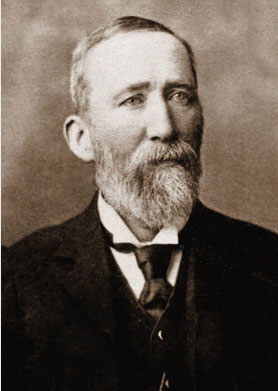Henry Alleyne Nicholson facts for kids
Quick facts for kids
Henry Alleyne Nicholson
|
|
|---|---|
 |
|
| Born | 11 September 1844 |
| Died | 19 January 1899 (aged 54) |
| Nationality | British |
| Alma mater | Appleby Grammar School University of Göttingen University of Edinburgh |
| Awards | Lyell Medal (1888) |
| Scientific career | |
| Fields | |
| Institutions | University of Toronto Durham College of Science University of Aberdeen |
Henry Alleyne Nicholson (born September 11, 1844 – died January 19, 1899) was an important British scientist. He was a palaeontologist, which means he studied fossils and ancient life. He was also a zoologist, meaning he studied animals.
Early Life and Education
Henry Alleyne Nicholson was born in Penrith, Cumberland, England. From a young age, he was very interested in geology, which is the study of Earth's rocks and history.
He went to Appleby Grammar School. After that, he studied science at two famous universities: the University of Göttingen in Germany and the University of Edinburgh in Scotland. He earned several degrees, including a Ph.D. in 1866 and a D.Sc. in 1867. His first published work was about the geology of Cumberland and Westmoreland.
A Career in Science
Henry Nicholson started teaching in 1869 at Edinburgh University. He taught Natural History, which covers many areas of science, including biology and geology.
He then became a professor at several universities:
- In 1871, he became a professor of natural history at the University of Toronto in Canada.
- In 1874, he taught biology at the Durham College of Science in England.
- In 1875, he became a professor of natural history at the University of St. Andrews in Scotland.
- In 1882, he moved to the University of Aberdeen, where he became the Regius Professor of natural history. He stayed there until he retired in 1899.
Discoveries and Awards
Henry Nicholson's main work was studying fossils of invertebrates. Invertebrates are animals without backbones, like insects, worms, and jellyfish. He focused on ancient creatures such as graptolites (tiny colonial animals), stromatoporoids (sponge-like fossils), and corals.
He also spent a lot of time doing field work, especially in the Lake District in England. This means he went out into nature to collect rocks and fossils and study the land. He worked with other scientists like Robert Harkness and John Edward Marr.
For his important contributions to geology, he was given the Lyell Medal in 1888 by the Geological Society of London. This is a very respected award for geologists. He was also elected a Fellow of the Royal Society of Edinburgh in 1870 and a Fellow of the Royal Society of London in 1897. These are honors given to top scientists.
Henry Alleyne Nicholson passed away in Aberdeen on January 19, 1899.
Images for kids


